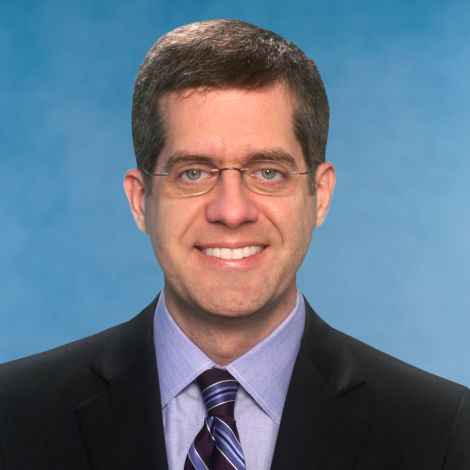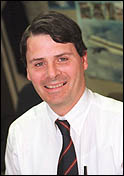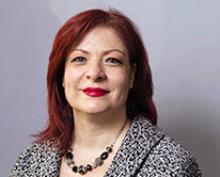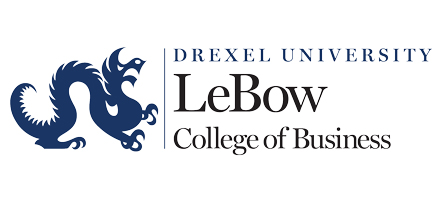
Many teachers consider “shaping young minds” to be their biggest reward. Who wouldn’t be excited by introducing new ideas and opening up possibilities? Isn’t that what being young is all about: dreaming and discovering, openness and experimentation, energy and opportunity? Over time, routine and responsibility cement a certain rigidity. Students become supervisors and specialists. They start families and set roots. Time draws short and responsibilities grow heavy. They always have somewhere to go, which means they are always missing out on something.

University of North Carolina’s Adam Mersereau
That’s what faculty in executive MBA programs face. Forget young minds. Each class, they are staring out at seasoned professionals, distracted, distressed, and drained – well, some days. In reality, these minds have returned to campus to collect ideas, change course, and chase dreams – and build their network and confidence in the process. That’s why EMBA professors are often the proverbial “total package” – a mix of teaching prowess, industry know-how, and empathetic ear, says Jaydev Thakkar, a digital health director and 2019 UCLA Anderson EMBA grad.
FROM FEARING MATH TO SPECIALIZING IN FINANCE
“Not only are they renowned experts in their field, they also carry a strong passion to share their knowledge and help students grasp the concepts,” he writes about his professors. “They were creative with their teachings and impactful in giving memorable messages. They genuinely cared for students. I know I can count on them to be my advisors throughout my professional career.”
One such professor is Adam Mersereau, who teaches statistics at the University of North Carolina’s Kenan-Flagler School. Here, he encountered Joanne Neighbors, an undergrad liberal arts major and senior military law attorney for the U.S. Army Forces Command. Admittedly, Neighbors hadn’t taken a math course in two decades. In fact, she would sometimes joke that she chose law school because admissions didn’t include a math requirement!
At first, her fears were validated by performance; she pulled (at best) a 55% average on pre-class assignments. Sure enough, Neighbors began to experience doubts on whether she “was cut out for business school.” However, Mersereau had taught plenty of students like Neighbors. He quickly put her (and the rest of the class) at ease, with a teaching style that Neighbors describes as “honest,” “engaging,” and “real world.”
In the end, Neighbors boosted her average to 89%. However, Mersereau’s teaching did more than help Neighbors beat her math aversion and fulfill her core requirement. “My success (albeit relative) in his class inspired me,” she writes. “Professor Mersereau helped me appreciate how business decisions can improve with evidence-based, data-rich, analytical precision. Thanks, in large part, to Professor Mersereau’s teaching, I’m now pursuing a concentration in finance.”
BECOMING THE CONSCIENCE OF A STUDENT

McGill-HEC Montreal’s Louis Gialloreto
Mersereau wasn’t alone in making a difference for the Class of 2019. Take Luis Garicano, a strategy professor at the University of Chicago’s Booth School. According to Stephanie Tanous, chief of staff to the CEO of Biogen, Garciano hit the academic double-play: he brought clarity to complex content while making it applicable to his students’ day-to-day lives.
“Professor Garicano demystified many of the companies I had admired from afar – Nintendo, Netflix, Microsoft. He methodically broke down their strategy evolutions into component parts, motivating the “why.” Perhaps more importantly, he gave a framework that I use on a regular basis in my work at Biogen to support our strategy and understand competitors.”
Louis Gialloreto may have achieved something even bigger. The McGill-HEC Montreal marketing professor became the voice inside the head of one of his students. “Quick-witted, challenging, and unwilling to accept half-answers, he forced me to question the business model of many of our initiatives and projects,” explains Isabel Dansereau, who heads the Old Port of Montréal complex. “To this day, I often find myself thinking: “What would Louis say?” when I am faced with a business decision.”
These are just a few examples of faculty cited by Poets&Quants’ 2019 Best & Brightest Executive MBAs. Each year, P&Q asks nominees to name their favorite business school professor and they influenced their MBA experience and career. Here are some of the professors who made a deep impression on EMBA students they taught.
“Professor Jay Dial taught two courses in the EMBA program – Managerial Economics and Leadership. Professor Dial has an uncommon, natural talent for teaching. He is one of the best professors I have had the honor and pleasure of learning from. He is hard, but fair and provides honest and candid feedback on all assignments. His professional and academic accomplishments and accolades demand respect – his attitude, personality, and professionalism earn it. His real gift is his ability to quickly gauge the class’s understanding of the topic and, if not, he stops as if it were planned and re-engages with a completely different approach to the same lesson. He makes these adjustments seem effortless. Very few teachers have his abilities. This skill is what separates undergrad and graduate professors or the Good from the Great. Professor Dial is one of the few professors who can do it at the executive level. Most of my classmates would agree that he was the benchmark for professors in the program.”
Joshua Quantz, Ohio State (Fisher)
“One of my favorite professors at SOM was Art Swersey, who taught Probability Modeling. You can really tell when a professor enjoys teaching. He would bring bacon and eggs, a quincunx (Google it!), or whatever he thought might help us better understand his lesson of the day to class. He was one of the many professors at SOM who hung out with his students outside of class. My memories of probability class during my undergraduate years consist of cramming for an exam. This time around, homework and tests felt more like fun puzzles that I relished solving.”
Ellie Campion, Yale SOM

MIT Sloan’s Georgia Perakis
“Professor Paul Ingram was catalytic in my Columbia Business School experience. He brought so much energy to his class Leadership and Organizational Change and his personalized end of semester letter completely changed the way I felt about my leadership potential. He had a way of igniting such inspiration in me and I have thought of that letter constantly in the past year-and-a-half when encountering challenging situations. As someone who has had “imposter-syndrome,” Professor Ingram’s praise and support have inspired me to take more risks and to try new opportunities that I likely would not have thought I could achieve previously. He and I continue to speak and work on projects regularly. T. Robert Zochowski, Columbia Business School
“Georgia Perakis, professor for Data Modeling and Decision Making (DMD), was my favorite professor. Not only was her passion for the subject visible, it was also contagious. She taught with meaningful, memorable stories in a way that made a difficult, dry subject exciting and applicable to our jobs. Further, she considered her audience and explained topics in multiple ways to ensure all left and right brained individuals could absorb the information. Also, as a project management professional that I am, I appreciated her clear preparation. She had key slides readily available for reference and ensured she was extremely familiar with her curriculum and content. She was consistently engaging and I was sad when the class ended as I think she changed the way I think more than any class to date. Specifically, when developing a business case for a project, she convinced me that timing is a critical part of decision-making, as opposed to stand-alone options that often omit timing altogether.”
Jennifer P. Braly, MIT (Sloan)




